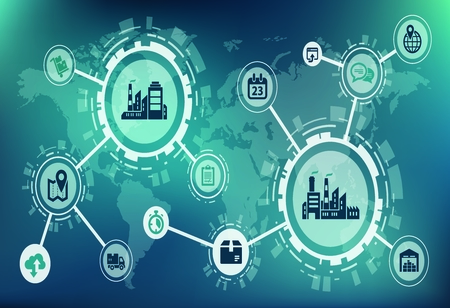With the outbreak of COVID-19 virus in December 2019, it has spread across 100 countries creating panic and health emergency situations around the world. Hence, it was quite evident that the effect would be felt significantly across the supply chain market this year. Supply chain will have a direct affect on the firms and financial market which drastically leads to a global economic crisis.
However, according to industry research, the global Digital Supply Chain market size is projected to reach USD 3810.5 million by 2026, from USD 3332 million in 2020, at a CAGR of 13.3% during 2021-2026.
This component has become core to numerous suppliers, manufacturing units, and distributors to deliver their products and services worldwide with an enhanced customer satisfaction. Moreover, enterprises are adopting various solutions in the supply chain analytics market for better delivery of products and services. These solutions revolve around the data that is being gathered from industries from patient records in healthcare, customer behaviors in retail, to logistics and transportation.
Everyone is aware of how powerful and critical component supply chain has become in the operations of different industry verticals, especially when it comes to retail, pharmaceutical, and healthcare sectors.
Here are some of the innovative technologies which is set to bring revolution in the supply chain domain:
Advanced Predictive Analytics
As the supply chain produces massive amounts of data, predictive analytics tools can be of significant importance when it comes to structuring all those data. From informing better operation decisions to streamline operations, Advanced Predictive Analytics is expected to become increasingly applied to the supply chain. According to a Gartner Inc. study, it has been found that 96 percent of respondents use predictive analytics where 50% use the technology to automate decision making, whilst, 58 percent use predictive and prescriptive analytics for augmenting human supply chain decisions.
Robotics and Autonomous Operations
A credible source has said that by 2022, alongside their human counterparts, about 938,000 robotic units are expected to work. Hence, robotization of processes and equipment within buildings, and also in autonomous driving, will have a fundamental impact on infrastructure and mobility within existing supply chain and logistics operations. Moreover, not only improving speed and accuracy, but in addition, robotics and automation can seamlessly carry low-value everyday tasks within supply chain operations, thus significantly minimizing risk.
Blockchain
Another promising next-gen technology that will be a perfect fit for the supply chain industry is blockchain. Especially when it comes to vastly distributed supply chain management systems - smart agreements or traceability and validation - will be the major aspirants of this technology. Though in its early stage, blockchain can track the movement of products from retail stores to customers, gold from mines to foundries by creating a digital record which would contain the unique ID, including carat, color, and certificate number.
